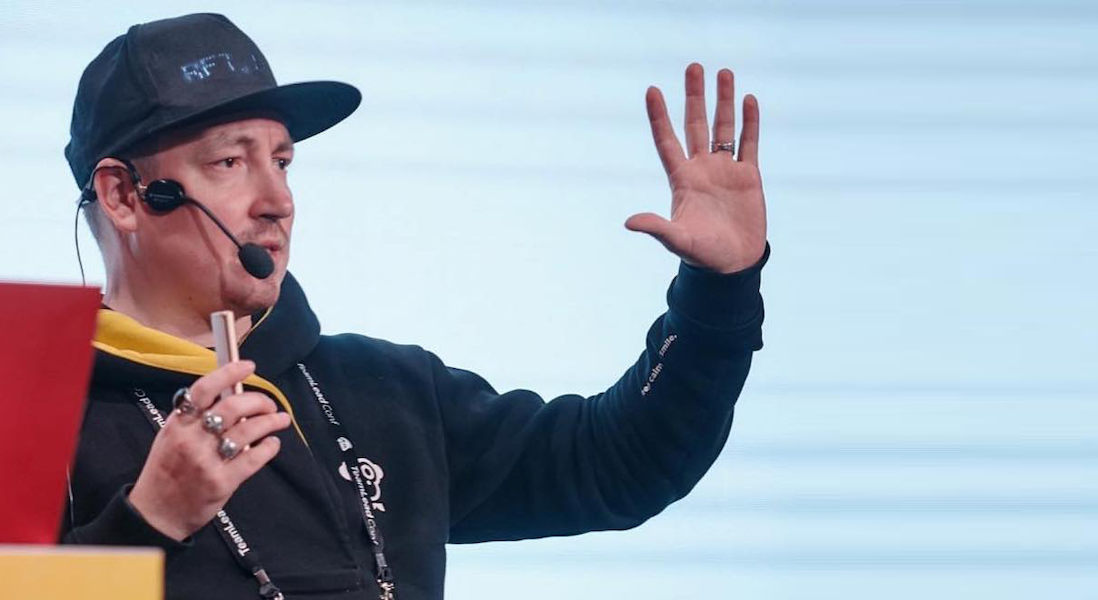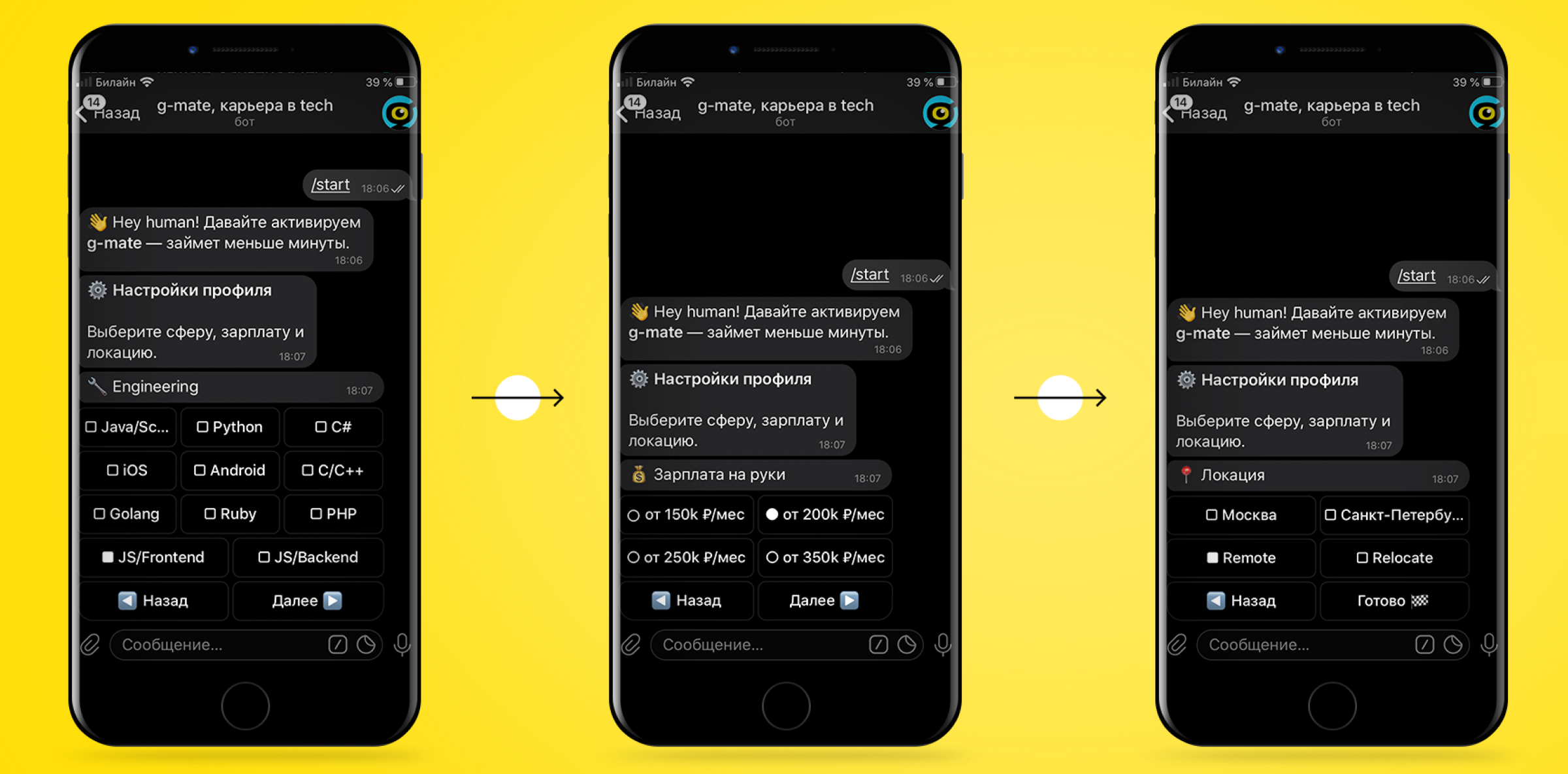In the text, we only talk about interviews:
- which resume will be read carefully, which will be closed in a couple of seconds,
- what they will ask you about in the interview and what should you ask the employer about,
- what soft skills to pump a QA engineer
- and how to discuss salary in an interview.
About product quality metrics, the death of QA - see the recording of the webinar on YouTube .

3 essential tips for writing a resume for QA
- 1,5 . , — . « », , . : 3 , — .
- . , « + ». , , , : , . : , , — , .
- . , — , , . , Fiddler, Charles, Android Studio, Xcode . — Insomnia, Postman, - . , , . — . , Zabbix, — , Zabbix.
From my own experience, I can say that it takes an interviewer 1–1.5 minutes to read one resume on average, he looks at the sheet diagonally. And if these attributes are met, the resume will be read a little more carefully. There is one minute to “sell” yourself, so it is important to highlight the most interesting cases from the experience.
What blocks does a standard interview consist of?
I will share a recipe that I meet and use it when I interview myself.
- First, introduce the company, describe the processes, tell about the team and expectations from the future colleague. I must say right away that in this part I like to leave "traps": I deliberately do not tell about something, so that at the stage of questions from the candidate he would have something to ask about, and I could go into details.
- — : , , . , , , . . , . , — , , .
- — . , : , — , — .
- . . . , , : , , CI/CD, , , , … , , , , . : , . , , , . , — .
- — . : , — , , . : , — . , , . , — , . , « », - .
The number of interviews depends on the specifics of the job and the stages of hiring in a particular company. If possible, I try to fit into one interview, I really don't like more than two.
Talent Partner at @g_jobbot will help you package your resume in a way that will interest interviewers and answer all interview questions. The bot is simple and quick to set up: sphere, salary, location (for example, "relocation"). The options that suit you will be sent to Telegram.

The most popular case to get an idea of what will happen in an interview
This case will not be a discovery for QA: testing the simplest form, search form or authorization / registration. Practice shows that many specialists cannot solve this problem in full, in accordance with what IT companies expect. Testers approach it from the point of view of testing theory, equivalence classes, boundary value analysis, and build graphs of state transitions. At the same time, they forget about product testing, when the focus is not on combinatorics and techniques such as pairwise, but on scenarios faced by a real user.
Probably now I have to exclude this question from interviews! But I'll give you an example. Authorization form: login-password, everything is simple. Login by mask is either phone or email, the password has some kind of restriction. Most candidates start to sort out combinatorial options: I will introduce a lot of spaces, something else. And for the user, other cases are important: with an existing account, even if the login-password (email + password, phone number + password) link is correct, it does not work on a non-existent link. You can crush here endlessly. For some reason they forget about the password recovery case. I regularly come across the fact that I forget the password for the next service, and I need to restore it.
You should not be allowed in the old way, but in the new way you should. It is from such cases that you can see how the candidate owns test design techniques, whether he can abstract from them and think about the product not as a set of buttons and shapes, but as a user scenario that the most ordinary user encounters.
Product vision certainly plays a role in testing. Nowadays there is such a trendy thing: shift-left testing. Testing is connected as early as possible, included in the planning procedure and requirements development. This approach is becoming more and more popular in many large companies, and it goes without saying that the QA engineer understands what the product vision is. Let the backlog contain 15–20 tasks: why do we do them, what benefits we bring to the user - depending on this, cases are built. For example, we want to increase the retention of a mobile application. It means that everything related to reactivating push notifications is a high priority for us. Therefore, they should work perfectly like a clock: come exactly, target a person to the place where they should, and so on. Of course, QA must understand why and how this happens.
There is an alternative approach: shift-right testing. The QA engineer does not start work when the ticket comes in ready for test state - he connects earlier, and does not drop it when the ticket goes to tested. The engineer helps to release, helps to maintain in production.
We are also talking about regression tests, which are repeated in the future and indicate that this functionality has not degraded. It's also about product metrics. Often, looking at them, one can make an assumption that something went wrong: we are looking at the same DAU, and it has dropped sharply after the last release. Perhaps, according to technical metrics, we did not catch this, there is no problem with regressions, but still this is a signal to figure out what went wrong, what influenced these events. Plus, don't forget A / B testing, feature toggling, and so on. Many companies release features to a part of the audience, QA, together with product analysts, evaluate whether the feature justifies the expectations placed on it, if so, they are rolling out further. QA should not abandon a feature, tested it does not mean that the work is finished.
What to ask interviewers in a job interview
Let me step aside: 50-60% of candidates fail when asked about their biggest failure. Many people find it difficult to admit failure. The feeling that they have read books about successful success and think that all stories are built on a series of extremely successful cases. This is not so: only the one who does nothing is not mistaken.
I urge everyone to be sincere and direct about their own failures. Do not try to evade, shove responsibility on colleagues, circumstances, phases of the moon. If a person talks well about his own failures, for example, how he analyzed them using the Five Whys technique or Ishikawa Diagram, figured out the reasons for the errors and eliminated them, which he did so that the problem does not recur - this is very captivating. If you are asked this question - be sincere, this is the key to success.
If we talk about what to ask interviewers, I advise you to ask questions that are applicable in practice, not abstract. For example, a person interviews for the position of a manual testing specialist, and asks what is in the company with automation, load testing, what are the prospects for becoming a team lead - although he is a junior himself.
Ask what is most relevant to the functional load in the future company: how the trial period will pass, what the tasks will be, how to understand whether you have passed the trial period or not, whether there is a kpi. You can immediately ask a counter question about the negative aspects of working in the company, about fakapah - this is an urgent question for both parties. I tell you very sincerely if there are problems, an unsettled process or little automation - I speak directly and do not pursue the goal of luring a specialist to me by any means. People make mistakes, and the company also has mistakes.
Soft skills for QA: 3 qualities that you should train in yourself in your opinion
The central skill is self-learning . It happens infinitely often, a candidate tells how he wants to dive into the specifics of mobile testing or automation, wants to become a team lead - and an evil and insidious employer does not allow him to do this. Therefore, he is looking for a job where he will be able to prove himself, and expects that he, as in The Wizard of Oz, will be taken by the handle and taken along the yellow brick road into the world of new knowledge and competencies.

Still, I want a person to be interested in his own learning. Of course, employers provide opportunities for growth within the company: conferences, meetups, attending specialized events, training budgets, and more. But it is important that the person himself takes steps in this direction: a pet project on automation, a link to Github, and there - yes, maybe, "pocket" tests, based on YouTube videos or Udemy courses. But this already shows that the engineer does not stand still, but has outlined a goal for himself and goes towards it, does not expect a miracle.
Second: it is important that the person radiates confidence... Sometimes you meet candidates and ask them to tell what http methods he knows. In an uncertain voice, he says: "get, post, it seems, patch, put ... delete ... options ...". You ask what is the difference between get and post, and in response: "Well, I'm not sure ... I think one gets, the other creates an object, or something like that ...". If you can see that a person gives the correct answers during an interview, but does it very uncertainly, in real work he will be eaten.
A trendy concept that is gaining momentum in product teams: there is a dedicated tester, and he is the only and most competent QA in the team. If during planning he says in the same way: “oh, well, I don’t know, maybe it’s not worth taking, I may not be in time” - it will not work. A person should exude confidence: such a character trait will not allow you to slip through bugs at the level "and so it will do." QA must convince colleagues, make arguments that this should not be done.
Also - autonomy in work... Increasingly, product QA teams work alone or in pairs. The service model has a large testing department, there are team leads - you can hide in a corner and sit out, and the problems will be solved by an older friend, lead engineer, team lead, group leader. In grocery, this will not work, and there are more and more companies with a similar approach. Therefore, it is necessary to pump confidence and autonomy.
And hence - and initiative. You need to pump it, not be afraid to express an opinion, highlight problems. Maybe ask to add a new status? Maybe start doing a code review? Resistance and light constructive opposition. For all this, of course, there must be initiative.
And all the same - with some soft skills you won't go far, there must be a technical background under them. An experienced interviewer will quickly notice if a person can only reason.
Salary by grades: what numbers can we talk about, what to strive for
I must say right away that the market was very badly broken by covid and remote control. The geography of presence has expanded, and many companies have changed their attitudes.
June - from 20 thousand to 100 thousand rubles. It is difficult to find a job with a large salary, courses alone are not enough, but you can get a job. In addition, it strongly depends on the region.
For middles, salaries also differ depending on the region, company, in which sector it works. Fintech usually pays the most - the area is specific. For the middle - from 70–80 thousand to 150–160 thousand. There is also the question of who considers what level to be middle - in my opinion, this is a formed QA, which represents where to develop, feels the ground under his feet, understands what he wants, can answer "five why".
Seniors: the lower limit - from 100-120 thousand rubles. I saw senior guys, not leaders, who in their position receive 300 thousand. These are not even foreign companies, such salaries exist within the Russian market. The only thing you need to be aware of is that if the sphere is cryptocurrency blockchain and the like, there is a risk that you will wake up on Monday, and the team lead wrote: sorry, there is no more work, there is no salary, you can keep your laptop. Sadly, I have heard such stories.

Team leads get from 140 thousand to 300 thousand, for heads I saw vacancies up to 500 thousand rubles. All the figures include taxes.
How to bargain about salaries
I don't want to shoot myself in the foot ... But again: the cornerstone, how involved and motivated a person is to work. No one wants to give an over-price to a senior who worked in cool organizations, but he speaks down. And vice versa.
Life hack - to give a fork with a small "slide" , so that even stepping back from the top bar, keep the brand. A normal technique, if I say: from 100 to 150, but in fact it will suit 130, you can resort to this.
Two more points: honesty , even about basic things like calling your current income level. And the argumentation - from experience, if there were 100 thousand, but I want 150 thousand, but there are really understandable arguments, the same mortgage - this approach will work much better.
It is important to be honest if the issue of finance is the defining one. Unpleasant sensations remain from a conversation with a person who, throughout the interview, beats himself with the heel to the chest, talks about development and interest in the product, the desire to work in a product team, and then calls the figure of 140 thousand, with the current 95 thousand. You involuntarily think about such people: and eat a fish, and not choke on a bone.
It's great if money becomes not an end in itself, but an additional reward, plus you want proportionality. Of course, it's not a secret for anyone that the transition to another company is associated with an increase in salary. But if it does not stick out, then it evokes sympathy. And, to be honest, there were times when I gave in excess of expectations, as an additional motivator. In those cases, I understood that a person is worth more, moreover, this story with Dunning-Kruger: some people underestimate themselves. It is important for them to show that they are great specialists, including in financial terms. Therefore, if I have the opportunity and have a budget, I hedge my own risks: that in six months or a year, having felt confident in himself, the specialist will not go to look at the market. I will give him good money - and he will work for more than one year.
Interview preparation resources
I and my former colleagues have several articles like “how to prepare for a backend testing interview” or “what are the requirements / expectations from QA”. They are relevant, I highly recommend.
There are a couple of links on inverted interviews: what questions to ask and why. This is extremely important: when a candidate sits in front of you and does not know what to answer when asked about a company or a product, it does not look very good. And vice versa, in my experience there was a person who googled our articles on Habré, read what the media write, installed the product, made a test order, wrote down several bug reports, a cover letter - this is captivating.
Despite the fact that for many positions, the candidate dictates the conditions, one way or another - companies choose employees, and involvement plays a role in this. Therefore, in addition to all these links, I recommend that you study what the company does, what kind of product and what specifics.
Preparing for the interview
- Interview for interviewees (Habr)
- Diving into Charles Proxy (Habr)
- The image of a modern tester. What you need to know and be able to (Habr)
- What a backend tester should know (Habr)
- Reverse interview (Github)
Exercise
- Test sites for real ninja training (Noveo blog)
- Can't Unsee
Help
- Software Testing
- Automated Testing
- Testbase
- About Testing
- Software quality and testing (Youtube)
Conferences and meetups
- SQA Days
- Heisenbug 2020 Moscow
- TestCon Moscow 2020
- Podlodka
- GeekBrains
- .
- Otus.ru
- QA.Guru
- RFT.QA
- uTest
- TestBirds
Telegram-
- https://t.me/qa_ru
- https://t.me/qa_bad_company
- https://t.me/qaevents
- https://t.me/yetanotherqa
- https://t.me/radioqa
- -,
- .
- 5
g-mate — QA. @g_jobbot, Telegram.